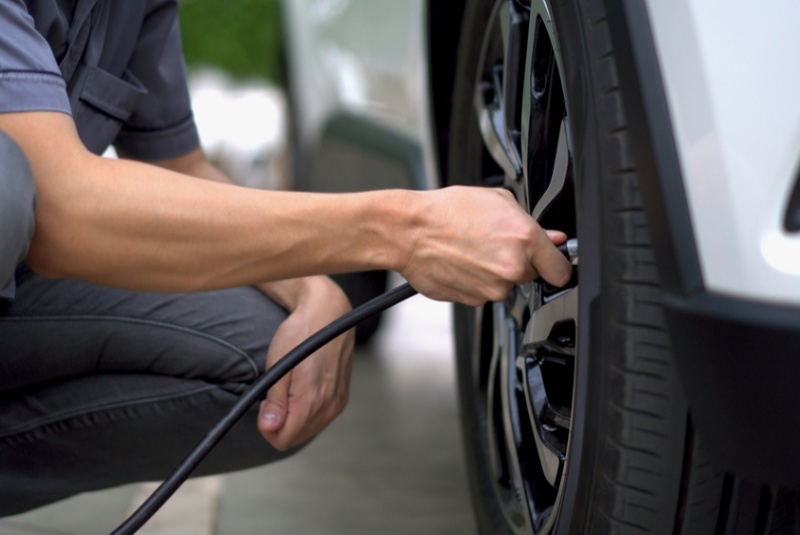When it comes to saving money, every little bit counts. One often-overlooked area of potential savings lies right beneath your car – your tires. Keeping your car tires properly inflated can significantly reduce your vehicle’s fuel consumption, leading to substantial cost savings over time. This article aims to shed light on how to save money by maintaining your tires at the recommended pressure.
Firstly, let’s understand the basics. Properly inflated tires mean less contact area between the tire and the road, resulting in less rolling resistance. The more rolling resistance your car has, the harder its engine has to work to move the vehicle, which translates to more fuel consumption. According to the U.S. Department of Energy, for every 1 psi drop in pressure in all four tires, fuel economy can be lowered by up to 0.2%. While that might not seem like a lot at first, it quickly adds up over time.
Moreover, under-inflated tires can cause other mechanical problems, leading to expensive repairs. By simply ensuring your tires are properly inflated, you can save money on both fuel and potential repair costs.

Now, the big question is, how can you keep your car tires properly inflated? Here are four simple steps:
- Check Tire Pressure Regularly: Invest in a good tire pressure gauge, and check your tire pressure at least once a month. Tires can lose about 1 psi of pressure each month and even more in colder weather. Don’t forget to check your spare tire, too.
- Know the Correct Tire Pressure: The correct tire pressure for your vehicle can be found in the vehicle’s manual or on the placard located on the inside edge of the driver’s door. Do not inflate your tires to the maximum pressure indicated on the tire sidewall. That number is the maximum pressure the tire can hold, not the recommended driving pressure.
- Inflate Your Tires Properly: Tires should be inflated when they are cold since driving warms up the tires and increases the pressure. If you drive to a gas station to inflate your tires, check the pressure before you leave and add the difference at the station.
- Get Your Tires Rotated Regularly: Tire rotation helps to ensure that your tires wear evenly, which can help them maintain consistent pressure. Check your vehicle’s manual for the recommended rotation schedule.
While it may seem tedious to check your tire pressure regularly, the benefits far outweigh the effort. Keeping your tires properly inflated not only increases your vehicle’s fuel efficiency and prolongs the life of your tires but also provides safer and smoother driving. The next time you get behind the wheel, remember – a quick tire pressure check can go a long way in driving savings. So, get in the habit of maintaining proper tire pressure and watch your fuel costs deflate while your savings inflate.




